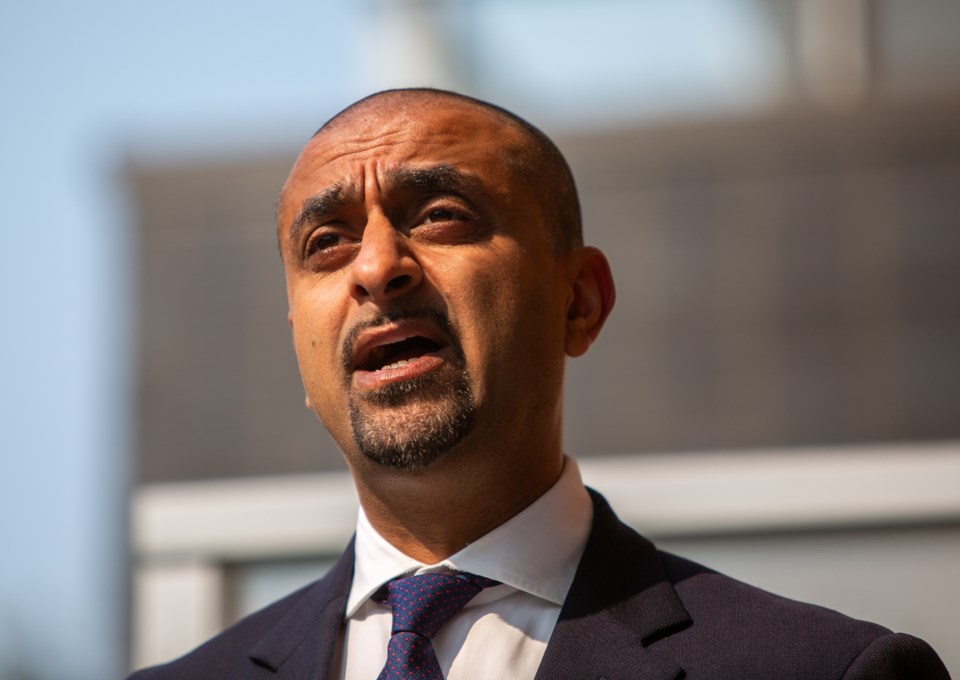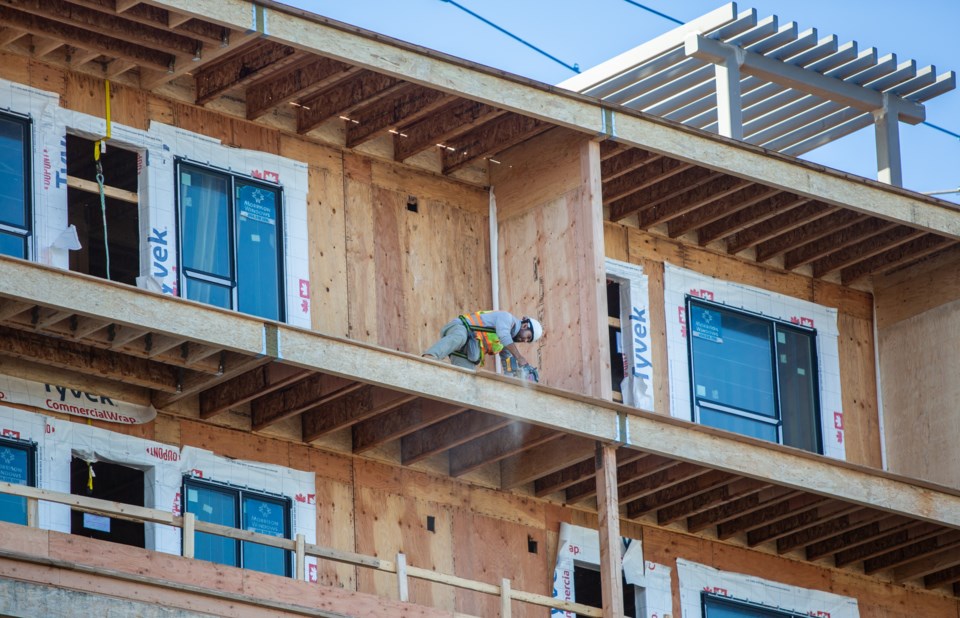Vancouver is falling short of the first-year housing target set by the provincial government but city planners say they expect the number of completed homes to increase in the next few years and surpass the B.C.-mandated five-year target of 28,900.
In a recent presentation to council, senior housing policy planner Edna Cho said that 1,607 housing units were completed between Oct. 1, 2023 and March 31, 2024. The provincial government’s 12-month target is 5,202.
Of the 1,607, a total of 819 were rental and 788 for ownership.
“We know that there has been a decline in completions over the last two years due to a number of factors,” Cho said.
“In 2019 to 2021, we issued fewer building permits in large part due to COVID. In addition, there has been a significant increase in construction costs, labour shortages, higher interest rates, to name just a few of the reasons.”
At the same time, Cho continued, there is “an unprecedented number of projects in stream as well as a significant number of low-density housing units that we project will complete over the next five years.”
Cho expects the total number of housing units completed to reach more than 31,300 by March 31, 2028, surpassing the target of 28,900 set by the provincial government last year.
That prediction is based on 8,000 units under construction, 14,600 units approved via rezoning or development permit issued and 4,200 units under application review. An additional 4,500 units of low-density housing is also expected to be completed over the next five years.
Cho’s prediction came with a caveat.
“It's important to note that municipalities play a crucial role in the permitting process, especially around approving and issuing permits,” she said, noting Vancouver had a “record year” in 2022 for number of residential building permits issued, totalling 7,775.
“However, after approval, there are many factors at play, leading to whether and how long it takes for a building to complete that are largely beyond municipal permitting, such as funding, financing and interest rates, construction costs, inflationary pressures and availability of labour and trades.”
HILS rates
An analysis of the 1,607 units completed in the first six-month period shows 50 per cent have two or more bedrooms, including 17 per cent with three bedrooms. The provincial mandate is that 39 per cent of all units have two or more bedrooms, including 22 per cent being three bedrooms.
Where Vancouver has really missed the mark is on housing built at Housing Income Limits rates, or HILS. To qualify for the HILS rate in Vancouver for a one-bedroom, the tenant or household cannot earn more than $58,000 per year.
Only 11 units were completed at HILS rates in the recent six-month period.
“Vancouver has a suite of programs, policies and incentives to encourage new below market and non-market housing at various levels of affordability and we expect a fair volume of these units to complete over the next five years,” Cho said.
“However, delivering rental units at the affordability level set by the province at or below HILS is very challenging at this time, given rising costs.”

'Anywhere near where we need to be'
Cho emphasized the need for “significant additional investment” from senior governments and other partners — a request Housing Minister Ravi Kahlon is familiar with, and one he said Monday that the B.C. government has been answering via various investments in Vancouver housing.
“Almost for two decades, both federal and provincial governments didn't invest in affordable housing and partnering with local governments,” Kahlon said. “So right now, I believe we have 1,800 under construction in the City of Vancouver and we just announced another 1,000 new projects that will be just starting.”
The minister said Vancouver needs to push more transit-oriented development, increase the number of units on a single-family lot and open up Shaughnessy to more units of housing.
“[The City of Vancouver’s] heights and setbacks and parking requirements are far more restrictive than what we've recommended,” said Kahlon, referring to the need for more small-scale housing on single-family lots.
“It does need to be looked at because I think staff said their expectation is maybe 100 of those units [would be built] a year. That's not going to get us anywhere near where we need to be.”
Housing Supply Act
Asked to respond to Vancouver’s six-month report card, he reiterated the three areas of concern for him.
“With those measures in place, I am confident the City of Vancouver will make it to where they need to be,” Kahlon said.
“Although the council has different opinions, they seem united on wanting to make sure that housing gets built, which gives me more hope than many other communities in the province that I'm having to deal with.”
In November 2022, the government introduced the Housing Supply Act to give it the authority to set housing targets in municipalities, starting with those with the greatest need and highest projected growth.
The targets are supposed to encourage municipalities to address local barriers to construction so that housing can get built faster, including updating zoning bylaws and streamlining local development approval processes.
Vancouver was one of 10 municipalities Kahlon announced in May 2023.




